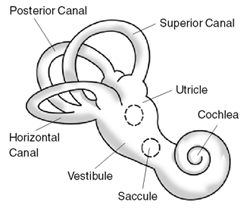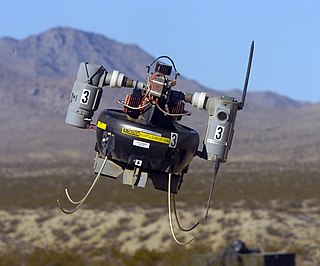
Mars Direct is a proposal for a human mission to Mars which purports to be both cost-effective and possible with current technology. It was originally detailed in a research paper by Martin Marietta engineers Robert Zubrin and David Baker in 1990, and later expanded upon in Zubrin's 1996 book The Case for Mars. It now serves as a staple of Zubrin's speaking engagements and general advocacy as head of the Mars Society, an organization devoted to the colonization of Mars.

Ménière's disease (MD) is a disease of the inner ear that is characterized by potentially severe and incapacitating episodes of vertigo, tinnitus, hearing loss, and a feeling of fullness in the ear. Typically, only one ear is affected initially, but over time, both ears may become involved. Episodes generally last from 20 minutes to a few hours. The time between episodes varies. The hearing loss and ringing in the ears can become constant over time.
PAL is a colour encoding system for analogue television.

A micro air vehicle (MAV), or micro aerial vehicle, is a class of man-portable miniature UAVs whose size enables them to be used in low-altitude, close-in support operations. Modern MAVs can be as small as 5 centimeters - compare Nano Air Vehicle. Development is driven by commercial, research, government, and military organizations; with insect-sized aircraft reportedly expected in the future. The small craft allow remote observation of hazardous environments or of areas inaccessible to ground vehicles. Hobbyists have designed MAVs for applications such as aerial robotics contests and aerial photography. MAVs can offer autonomous modes of flight.
NEM, Nem or nem may refer to:
Sir is a respectful form of address for a man, and a formal title used in the United Kingdom for knights and baronets.

Hungarian State Railways is the Hungarian national railway company and the MÁV Zrt. is the railway infrastructure manager, with subsidiaries "MÁV-START Zrt.", and "Utasellátó".
Air is the name given to the atmosphere of Earth.

Vertigo is a condition in which a person has the sensation that they are moving, or that objects around them are moving, when they are not. Often it feels like a spinning or swaying movement. It may be associated with nausea, vomiting, perspiration, or difficulties walking. It is typically worse when the head is moved. Vertigo is the most common type of dizziness.
Moa are extinct giant flightless birds native to New Zealand.

A Mars sample-return (MSR) mission is a proposed mission to collect rock and dust samples on Mars and return them to Earth. Such a mission would allow more extensive analysis than that allowed by onboard sensors.

MÁVAG was the largest Hungarian rail vehicle producer. MÁVAG company was the second largest industrial enterprise after the Manfréd Weiss Steel and Metal Works in the Hungarian half of the Austro-Hungarian Monarchy. MÁVAG was the property of the Kingdom of Hungary. After World War II MÁVAG was nationalized, and "Királyi" ("Royal") was removed from its name.
Wow, WOW or WoW may refer to:
Vestibular migraine (VM) is vertigo with migraine, either as a symptom of migraine or as a related neurological disorder.

The history of rail transport in Slovakia began in November 1836, at the founding meeting of the participating companies for the construction of a horse railway from Bratislava to Trnava. The first section of that railway was launched on 27 September 1840.

The Raaberbahn or GYSEV is a Hungarian-Austrian railway company based in Sopron, Hungary. The company is a joint enterprise of the states of Hungary (72%) and Austria (28%). In Hungarian it is called the Győr–Sopron–Ebenfurti Vasút (GYSEV), and in German it was known as the Raab-Oedenburg-Ebenfurther Eisenbahn (ROeEE) until 2008, when the name was changed to Raaberbahn.

The NASA-ESA Mars Sample Return is a proposed Flagship-class Mars sample return (MSR) mission to collect Martian rock and soil samples in 43 small, cylindrical, pencil-sized, titanium tubes and return them to Earth around 2033.
This page is based on this
Wikipedia article Text is available under the
CC BY-SA 4.0 license; additional terms may apply.
Images, videos and audio are available under their respective licenses.









